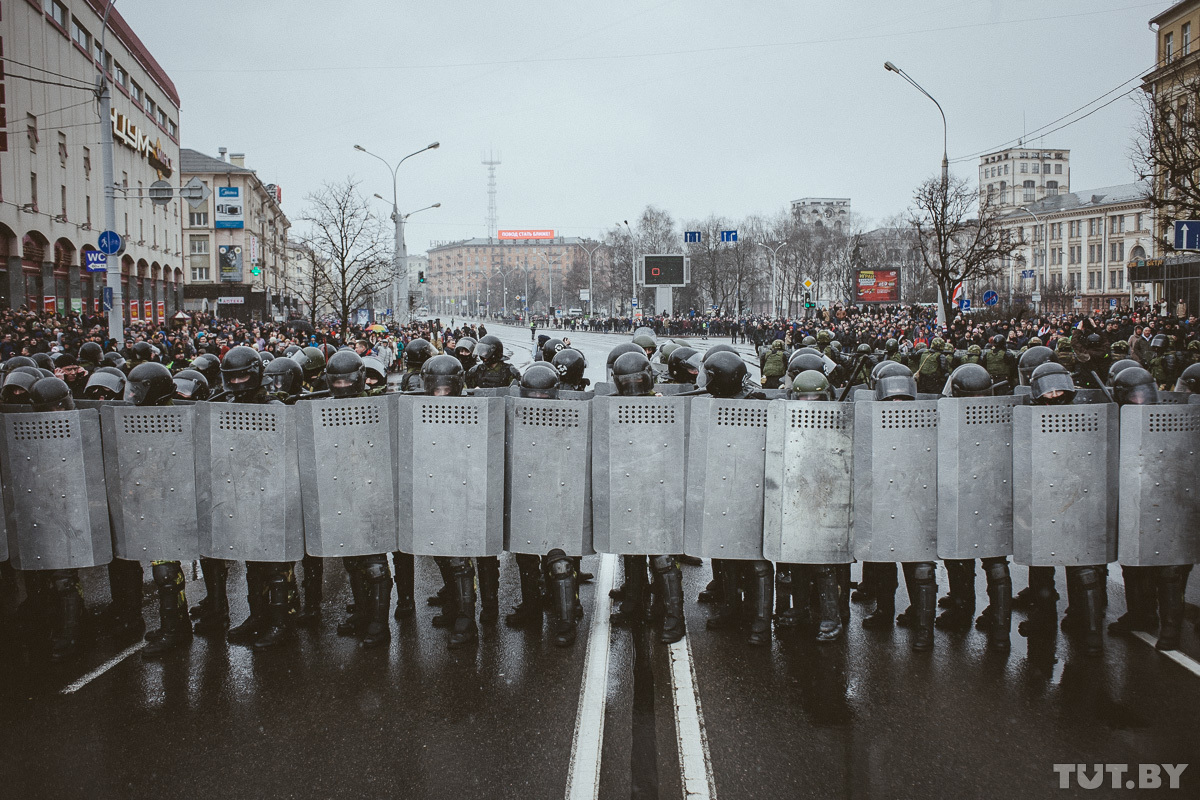Belarusian society rapidly adapts to enhanced repressions by authorities
 The situation has not changed
The situation has not changed

The Belarusian authorities have succeeded in halting street protests, divorcing the oppositional political agenda and people’s social and economic demands, and mobilising the power machine. Tension and mutual accusations are growing among the opposition parties, while society is demonstrating high level of self-organisation through networking and solidarity. The Belarusian leadership is likely to continue to apply pointed repressions in relation to street protests and pressure the independent media, as well as attempts to engage in a dialogue with their local opponents in order to relax social tension.
Participants in the officially unauthorised Freedom Day rallies, detained on March 25th and 26th, have been subjected to fines and administrative arrests up to 25 days.
Apparently, the Belarusian authorities are testing various scenarios of halting the protest movement, in case the socio-political crisis deteriorates and people’s discontent grows, in the case of a sharp drop in trust in state institutions and large-scale spontaneous protests in the capital. The last time the Belarusian leadership could ensure that it had a loyal power block of which it was fully in control amid highly politicized society, was during the clampdown on the Election Day protests on December 19th, 2010. Albeit at that time, the economic situation was much more stable and people’s well-being was growing.
The Belarusian leadership has managed to refocus the opposition on human rights issues and temporarily remove social and economic demands from their agenda, which should stop the rapprochement between the opposition rhetoric and people’s expectations. Despite the increasing repressions by the authorities, Belarusian society is not showing signs of returning to political apathy or immersing in the atmosphere of fear, rather responds with increased networking and self-organisation. Detentions, fines and arrests imposed on protesters and independent media representatives have prompted a wave of solidarity in Belarusian society.
In addition, the authorities carefully resume the issue of potential terrorist threat to Belarus, most likely, in order to draw the attention of external observers. A security threat requires additional media efforts in order to preserve the president’s image for the population as the guarantor of stability in the country. Moreover, growing tension in Belarus damages her image as an acceptable negotiating platform for settling the conflict in Ukraine and nullifies Minsk’s attempts to become a security donor in the region. Finally, the authorities hope that recent protests in Russia would somewhat overshadow perception by western capitals of the violent clampdown on the opposition rally on Freedom Day.
The authorities are likely to continue pressuring leaders in street protests and independent media organisations in order to refocus the opposition agenda on human rights and political issues in an attempt to restore their communication barriers with protest groups among the population on socio-economic issues.
Subscribe to our newsletter




Situation in Belarus
Constitutional referendum: main consequences


 Video
Video
How to count the political prisoners: are the new criteria needed?


 Video
Video
Paternalism In Decline, Belarusian Euroscepticism, And The Influence Of Russia


 Video
Video












